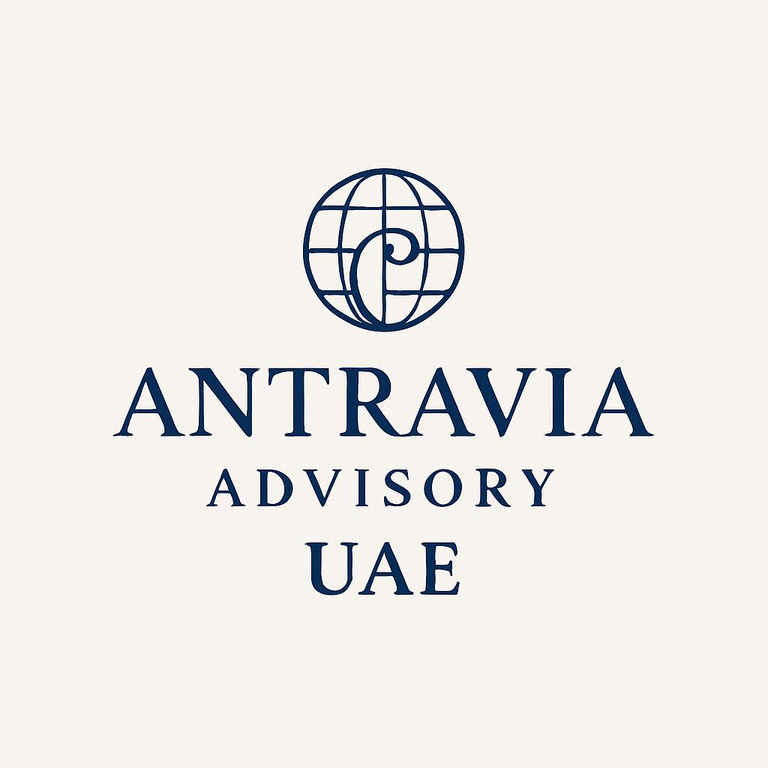UAE Corporate Tax for Free Zone Companies: What counts as Qualifying Income (2025 Update)
Understand UAE corporate tax for free zone entities. Learn how qualifying income works, which activities lose 0% status, and how to stay compliant in 2025.
TRAVEL FINANCE AND ACCOUNTING BLOG - U.A.E EDITION
10/23/20256 min read


UAE Corporate Tax for Free Zone Companies: What counts as Qualifying Income (2025 Update)
Since the UAE's corporate tax regime took effect on June 1, 2023, free zone companies have enjoyed a potential 0% rate on qualifying income, a lifeline for entities in places like DMCC, JAFZA, or ADGM, where tourism and logistics thrive. But as 2025 approaches, with the Federal Tax Authority (FTA) ramping up audits and clarifying guidance, the line between 0% and the standard 9% rate is sharper than ever. For travel and hospitality businesses in free zones, think DMCs coordinating desert tours from Dubai Silicon Oasis or hotels in Ras Al Khaimah's economic zone, this distinction can mean the difference between optimized cash flow and unexpected liabilities exceeding AED 375,000 in taxable profits.
The key? Qualifying income. It's not just about being in a free zone as it is about what you earn, from whom, and how you operate. This update draws on FTA's Cabinet Decision No. 55/2023 and recent clarifications (e.g., Ministerial Decision No. 139/2023 on substance), focusing on 2025 implications like enhanced transfer pricing scrutiny and ESR renewals. We'll break down the 0% vs 9% mechanics, what qualifies, common disqualifiers, and ties to economic substance and transfer pricing, tailored for UAE travel pros navigating mainland deals or foreign clients.
The 0% vs 9% Divide: A Quick Primer
UAE corporate tax (CT) applies at 9% on taxable income over AED 375,000, but Qualifying Free Zone Persons (QFZPs) can claim 0% on "qualifying income" from "qualifying activities." To be a QFZP, your free zone entity must:
Maintain "adequate substance" (e.g., core income-generating activities in the zone, per Cabinet Decision No. 55/2023).
Derive qualifying income from approved sources.
Comply with arm's-length transfer pricing (TP) for related-party deals.
Opt into the regime via FTA notification (by end of first tax period).
For non-qualifying income, it's taxed at 9%, no threshold relief. In travel/hospitality, where margins hover at 10-15%, even AED 500,000 in mainland-sourced commissions could add AED 45,000 in tax. FTA's 2025 focus on "deemed mainland" activities (e.g., via agents) means proactive structuring is essential.
What counts as Qualifying Income?
Qualifying income is the heart of the 0% rate, limited to revenue from "qualifying activities" with non-mainland counterparties or compliant mainland ones. Per Ministerial Decision No. 265/2023, it includes:
Transactions with Other Free Zones: Full 0% if both parties are QFZPs (e.g., a JAFZA-based DMC selling tours to a DMCC hotel). No restrictions, so ideal for intra-zone collaborations like Abu Dhabi tour operators partnering with Dubai spas.
Exports and Foreign Clients: Income from goods/services supplied outside mainland UAE qualifies fully (e.g., a free zone hotel exporting management services to Oman or a travel agent booking U.S. clients for UAE safaris). This covers 70%+ of many free zone travel firms' revenue, per FTA data.
Mainland UAE Transactions: Only if "de minimis" (≤5% of total revenue or AED 5M) and from qualifying activities like logistics or distribution. For travel, this might include a free zone agent coordinating mainland hotel bookings, but only if the core activity (e.g., itinerary planning) occurs in the zone. Exceeding the threshold? 9% on the excess.
Qualifying Activities: Must be "exclusive" (no non-qualifying mixed in). Travel-relevant ones include holding IP (e.g., tour branding), logistics (e.g., visa processing), and R&D (e.g., app development for bookings). Non-qualifying (9% always): Banking, insurance, or real estate development.
2025 Update: FTA's October guidance (Public Clarification CT-2025-02) emphasizes "economic nexus" for digital services.. e.g., a free zone DMC's app-based bookings for mainland users may disqualify if >5% revenue, pushing toward 9% on digital streams.
Example: A DMCC travel agency earns AED 10M total: AED 6M from foreign tour exports (0%), AED 3M from JAFZA logistics partners (0%), AED 1M from mainland hotel commissions (de minimis, 0%). Total qualifying: AED 10M—0% tax. Flip to AED 2M mainland? AED 1M excess at 9% = AED 90,000 liability.
Disqualifying Triggers: What pushes you to 9%?
Losing QFZP status isn't permanent but triggers 9% on all income for the period. Common pitfalls for travel/hotels:
Mainland Exposure > De Minimis: >5% or AED 5M from UAE mainland (e.g., direct Dubai hotel sales from a free zone agent). FTA views "nexus" broadly... e.g., a Ras Al Khaimah hotel's mainland marketing arm disqualifies the zone entity.
Lack of Substance: No "adequate" core activities in the zone (e.g., a JAFZA DMC outsourcing all planning to mainland freelancers). 2025 ESR renewals (due March 31) require audited proof of CIGA (Core Income-Generating Activities) like contract negotiation or client servicing.
Mixed Activities: Blending qualifying (e.g., export tours) with non-qualifying (e.g., mainland retail). Apportionment applies, but audits dissect, e.g., 60% qualifying income taxed at 0%, 40% at 9%.
TP Non-Compliance: Related-party deals (e.g., free zone parent charging mainland subsidiary for branding) must be arm's-length (Ministerial Decision No. 113/2023). 2025 TP master/local files mandatory for >AED 200M revenue groups; penalties up to AED 50,000.
Example: A free zone hotel chain (AED 20M revenue) with 7% mainland bookings (AED 1.4M) loses de minimis, taxing AED 1.4M at 9% = AED 126,000 hit. Add ESR failure? Full 9% on AED 20M = AED 1.44M liability.
ESR and Transfer Pricing
Economic Substance Regulations (ESR, Cabinet Resolution No. 57/2018, updated 2025) and TP are QFZP gatekeepers, non-compliance disqualifies 0% status.
ESR: Free zone entities in "relevant activities" (e.g., holding company for tour IP) must demonstrate substance: Board meetings in UAE, 2+ full-time employees, AED 50k+ operating expenditure. Travel example: A DMCC DMC must conduct itinerary design in-zone. Renew annually (March 31, 2025 deadline); FTA's 2025 portal mandates audited reports.
TP: All QFZPs need TP policies for intra-group deals (e.g., free zone agent charging affiliate 5% commission on bookings). Use CUP/methods per OECD-aligned rules; document in local file. 2025: Country-by-Country Reporting for >AED 3.15B groups.
Link to Qualifying Income: ESR/TP failures deem mainland transactions "non-compliant," taxing at 9%. For travel, this hits inter-zone hotel chains or agent-supplier arms.
Renewal and Audit Implications for 2025
QFZP status renews annually via FTA portal (by tax return filing). 2025 audits (up 30% per FTA) target "shell" entities, e.g., free zone holding companies with no UAE substance. Penalties: AED 10,000-50,000 for ESR/TP breaches; 100-300% for TP adjustments.
For travel/hotels: Document CIGA rigorously (e.g., logs of zone-based client calls); segregate mainland revenue. FTA's Voluntary Disclosure Program (pre-audit) waives penalties if self-reported.
Example: A JAFZA tour operator audited for mainland nexus (6% revenue) pays AED 45,000 tax + AED 10,000 penalty, but voluntary disclosure drops the fine to zero.
Final Thoughts: Structure for the 0% Edge
In UAE's free zone ecosystem, home to 40+ zones fueling AED 200B+ tourism, qualifying income isn't automatic; it's earned through substance and compliance. For agents/hotels, prioritize de minimis thresholds, ESR-proof your ops, and TP-document cross-border flows. 2025's clarifications make it easier to qualify, but audits will test it.
Antravia UAE helps free zone travel pros audit structures, model qualifying income, and file ESR/TP, ensuring 0% where possible. Book a free consultation at antravia.ae to review your setup.


References
Federal Tax Authority (FTA). "Corporate Tax Guide on Free Zone Persons" (CTGFZP001). June 2023 (updated October 2025). https://tax.gov.ae/en/corporate.tax/guides/ctg.fzp.aspx
Cabinet Decision No. 55 of 2023 on Determining Qualifying Income and Excluded Activities. https://www.mof.gov.ae/en/resourcesandbudget/cabinetdecisions/pages/decision55.aspx
Ministerial Decision No. 139 of 2023 on Economic Substance Requirements. https://tax.gov.ae/en/esr/decisions/ministerial139.aspx
Ministerial Decision No. 113 of 2023 on Transfer Pricing. https://tax.gov.ae/en/transfer.pricing/guides/md113.aspx
FTA Public Clarification CT-2025-02: Deemed Mainland Nexus for Digital Services. October 15, 2025. https://tax.gov.ae/en/corporate.tax.public.clarifications/ct202502.aspx
OECD. "Transfer Pricing Guidelines for Multinational Enterprises" (UAE-aligned). 2022 edition. https://www.oecd.org/tax/transfer-pricing/oecd-transfer-pricing-guidelines-for-multinational-enterprises-and-tax-administrations-2022-0e655865-en.htm
Dubai Tourism and Commerce Marketing (DTCM). "Dubai Tourism Economic Agenda 2033." 2024 Report. https://www.visitdubai.com/en/business-in-dubai/tourism-statistics
Disclaimer
This article is provided for general informational purposes only and does not constitute accounting, tax, or legal advice. Regulations and requirements in the United Arab Emirates change frequently, and their application can vary depending on business structure, free zone, or activity type. Antravia AE provides strategic financial and business advisory guidance.
Readers should always verify details directly with the relevant UAE authorities or consult a licensed local professional before making business or financial decisions.
Antravia Advisory U.A.E.
Where Travel Meets Smart Finance
Email:
Contact us:
© 2025. All rights reserved. | Disclaimer | Privacy Policy | Terms of Use | Accessibility Statement
© 2025 — Antravia.ae part of the Antravia Group.
Antravia.com | Antravia.co.uk | Antravia.ae |
Finance.travel | Tax.travel | Consultancy.travel | Vat.travel | Vat.claims |
USSales.tax | EuroVAT.tax | UKVAT.tax |
contact@antravia.com
Antravia LLC
